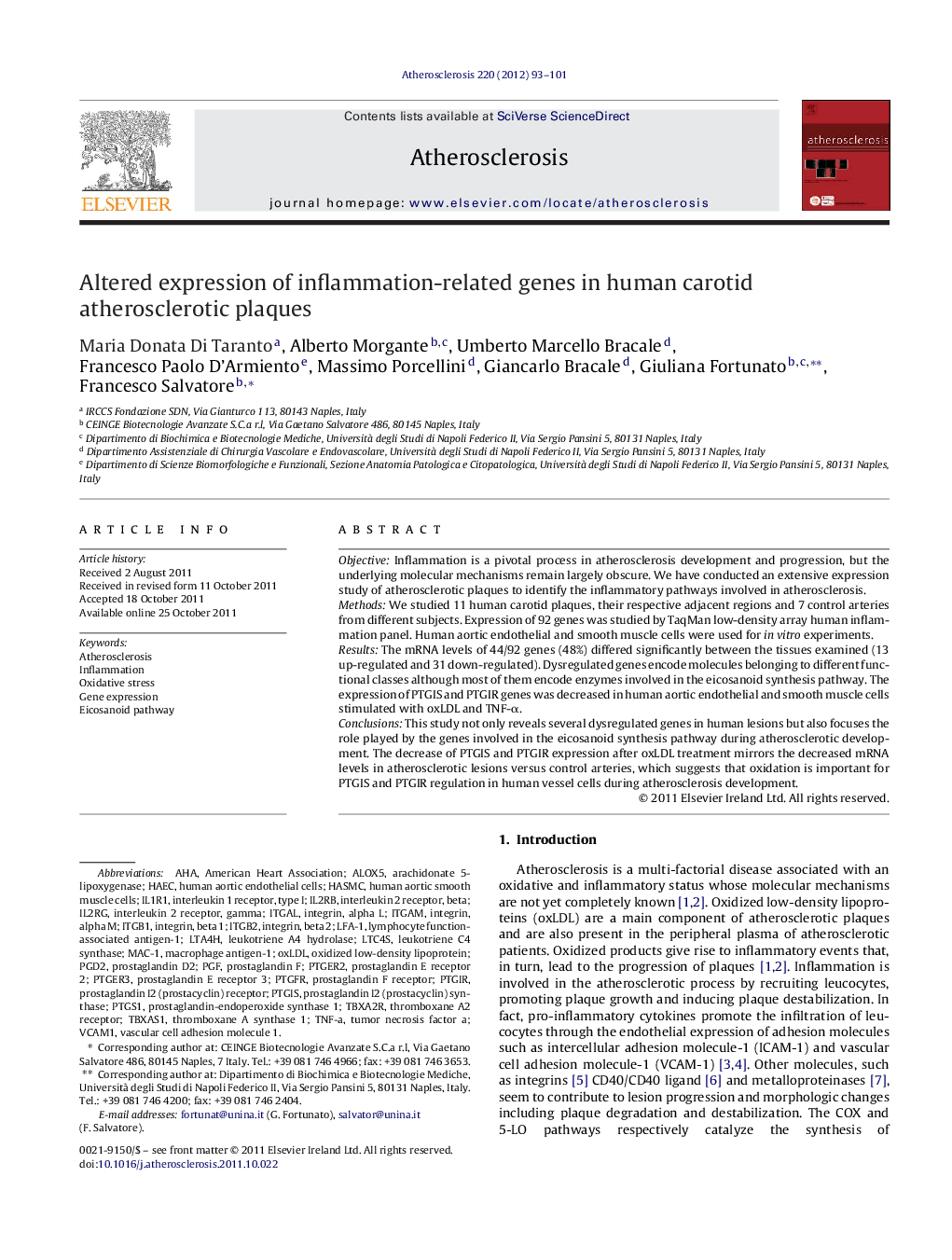| Article ID | Journal | Published Year | Pages | File Type |
|---|---|---|---|---|
| 5949048 | Atherosclerosis | 2012 | 9 Pages |
ObjectiveInflammation is a pivotal process in atherosclerosis development and progression, but the underlying molecular mechanisms remain largely obscure. We have conducted an extensive expression study of atherosclerotic plaques to identify the inflammatory pathways involved in atherosclerosis.MethodsWe studied 11 human carotid plaques, their respective adjacent regions and 7 control arteries from different subjects. Expression of 92 genes was studied by TaqMan low-density array human inflammation panel. Human aortic endothelial and smooth muscle cells were used for in vitro experiments.ResultsThe mRNA levels of 44/92 genes (48%) differed significantly between the tissues examined (13 up-regulated and 31 down-regulated). Dysregulated genes encode molecules belonging to different functional classes although most of them encode enzymes involved in the eicosanoid synthesis pathway. The expression of PTGIS and PTGIR genes was decreased in human aortic endothelial and smooth muscle cells stimulated with oxLDL and TNF-α.ConclusionsThis study not only reveals several dysregulated genes in human lesions but also focuses the role played by the genes involved in the eicosanoid synthesis pathway during atherosclerotic development. The decrease of PTGIS and PTGIR expression after oxLDL treatment mirrors the decreased mRNA levels in atherosclerotic lesions versus control arteries, which suggests that oxidation is important for PTGIS and PTGIR regulation in human vessel cells during atherosclerosis development.
